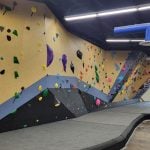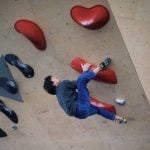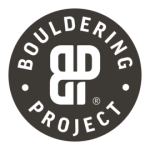
Authored by Jan De Smit and Nataleigh Bell
Fifteen years ago, the climbing industry worldwide was a different landscape. Gyms were starting to pop up like mushrooms across cities around the globe, and climbing was slowly transitioning from a fringe sport into a mainstream activity.
Before 2010 or so, climbing gyms in many places were often still run by gym owners who managed ALL aspects of their facilities, including routesetting.
During this time, we decided to start Atari Climbing out of Belgium, where our setting careers began. Having done years of commercial setting for gyms across Europe and competition setting for multiple IFSC World, Continental and European Cups, we wanted to share our knowledge and passion for setting with more climbing communities. Our goal was simple: to elevate the quality and diversity of routes and boulders by offering professional routesetting services to European gyms that could benefit from the expertise.
The initial years were filled with challenges. The concept of hiring an external routesetter was foreign to many gym owners at the time, who were skeptical about the need to outsource something that had traditionally been handled internally. Moreover, the idea of paying a freelancer for a service that had been done in-house for free or at a minimal cost seemed unnecessary to many owners. We often had to educate clients on the value of professional routesetting, explaining how a well-designed route could enhance climber satisfaction, reduce injury risks and boost customer retention.

Persistence and passion were key for us to overcome these hurdles. We began by offering consultations to demonstrate the impact of professional routesetting. Slowly but surely, word began to spread. Climbers started to notice differences between the routes set by us and those set by the gyms’ staff. We often heard the routes were more engaging, diverse and thoughtfully set, catering to a wider range of skill levels and climbing styles. As more climbers voiced their appreciation, gym owners began to see the benefits of investing in high-quality routesetting.
After a few years, we had the opportunity to diversify the business and we launched workshops and training programs for new and aspiring routesetters, sharing our knowledge and expertise. We have now given workshops in Norway, South Africa (for the national team), Portugal and Germany, to name a few places. In addition to the workshops, we also provide novice and advanced routesetting courses internationally (climbing gyms and national federations can contact us at Info@atariclimbing.com for more information or to schedule a course).
To provide new setters with all the information they were provided with in the workshops, we decided to write a comprehensive book, called “I Routesetter.” The highly anticipated book—now available for ordering in the U.S.—provides a good overview of information that’s important for setters everywhere to know, including basics, helpful tips and inspiration from pro setters, making it an invaluable resource for both novice and experienced setters anywhere.
We hope we can help a new generation of routesetters have a sustainable, legitimate and rewarding career.
For Europe you can order through:
For U.S. customers:
Kilter Grips (for wholesale purchases, select the “retail bulk order inquiry” option)
This story was paid for by the sponsor and does not necessarily represent the views of the Climbing Business Journal editorial team.











